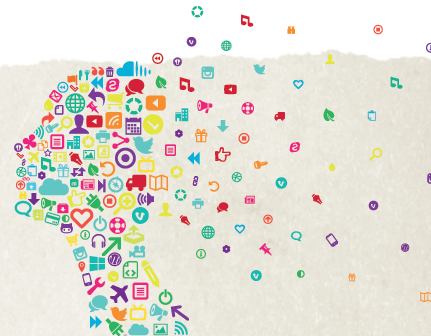ONLINE IDENTITY
What is identity? Is it who you are or is it who people think you are? Or is it both? Who are you? Your friends at school may think that you are a funny, easy-going and playful person or a serious and boring person. Maybe your teachers think that you are a gifted artist, an adventurous teenager, a sporty athlete or they may think of you as someone who isn’t hard-working or who is rebellious. Of course, you’re always the same person but probably you have different identities depending on the people who you’re with and where you are. For example, at school you may keep a low profile and stay out of trouble so that you have the image of a shy and laid-back student. On the other hand at home, your family thinks that you’re an energetic teenager who makes practical jokes.
If you have a smartphone, tablet, or computer to play games and chat with friends, that means you also have an online identity. Basically, your online identity is a reflection of how you look, what you do, and what you say when you’re using these devices. If you use a football player as your avatar, then that clearly tells something about you and your personality. Many games and most websites like Minecraft, Facebook and Instagram have the option for their users to create an avatar - a symbolic character that represents you. Websites with games, chat, and messaging options also let you choose your own screen name. If you want to be known as “Prisoner of Azkaban” or “The King of Basketball”, then that’s simply your new name.
So, does that mean you really like Harry Potter or basketball? Should you tell your new online friends how much you love these two? That’s totally up to you but when you’re online how much should you share about your real self? Imagine you’re in a big shopping mall full of people. Would you tell any person in that mall about yourself? Sharing your personal life with others is a serious thing and you should always be cautious for your own safety. So, whenever you are online, you need to have rules so that you can protect yourself. The most important rule is not sharing your personal information such as your name, age, address and phone number on any sites or with strangers. If there’s something that makes you feel uncomfortable, you should immediately tell your parents. Never share your password with anyone. Finally, always ask your mother and father before downloading things as they may be harmful for you.

